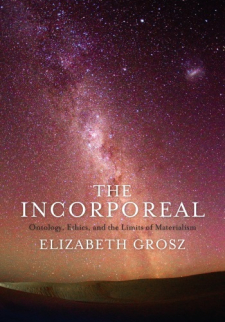Columbia University Press

Philosophy has inherited a powerful impulse to embrace either dualism or a reductive monism, either a radical separation of mind and body or the reduction of mind to body. But from its origins in the writings of the Stoics another view has acknowledged that no forms of materialism can be completely self-inclusive—space, time, the void, and sense are the incorporeal conditions of all that is corporeal or material.
Grosz argues that the ideal is inherent in the material and the material in the ideal. By tracing its development over time she makes the case that this same idea reasserts itself in different intellectual contexts. She shows that not only are idealism and materialism inextricably linked but that this "belonging together" of the entirety of ideality and the entirety of materiality is not mediated or created by human consciousness. Instead, it is an ontological condition for the development of human consciousness.